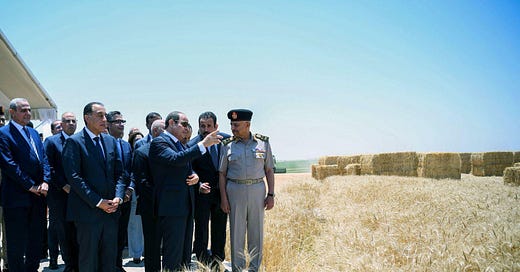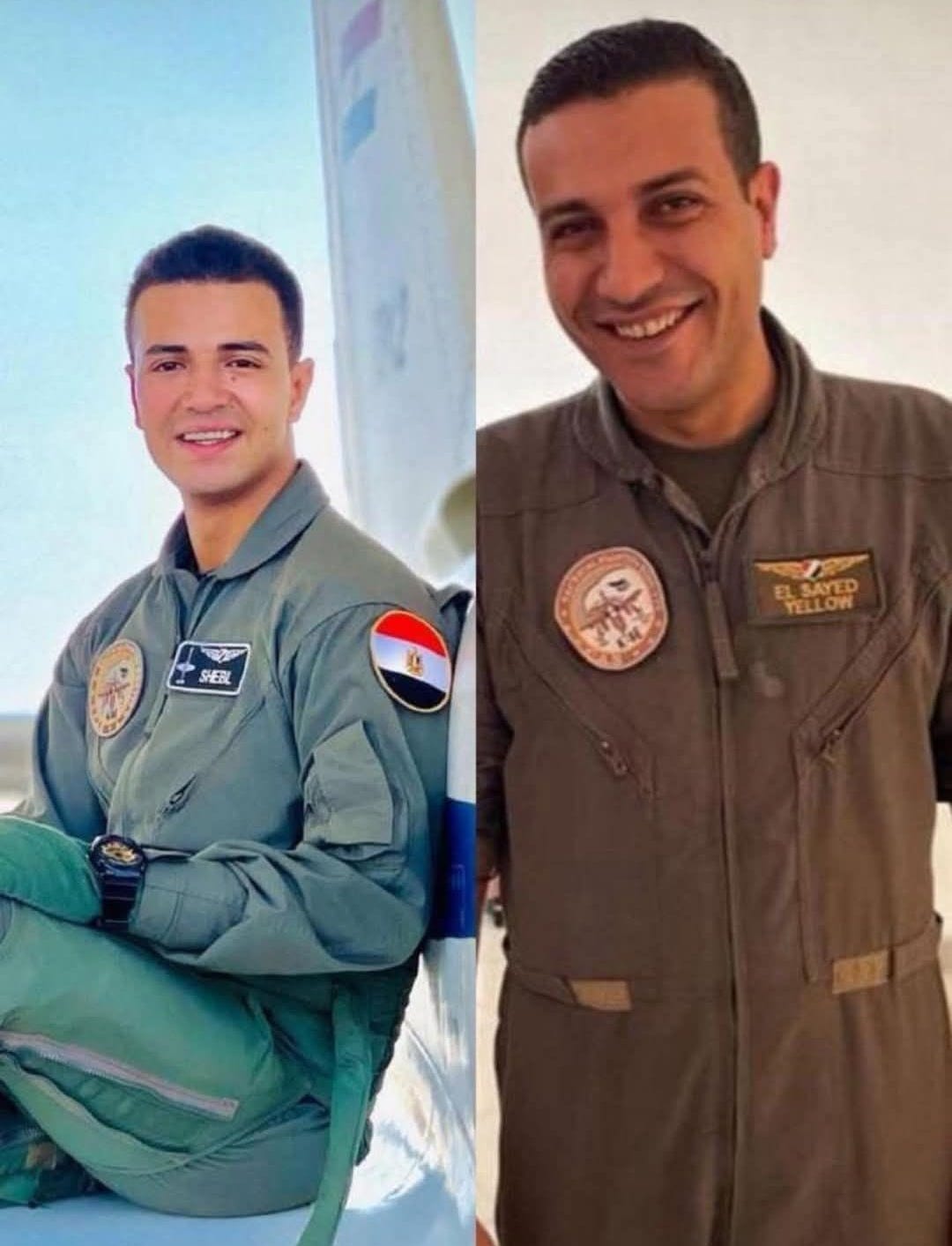This week’s dispatch tracks the increasingly blurred lines between Egypt’s military, economic, and diplomatic roles—from the Air Force’s deepening entrenchment in land and lake takeovers to the General Intelligence Service’s expanding footprint in Libya and media. As state-backed repression continues at home—targeting lawyers, journalists, and hunger-striking families—Cairo shores up its foreign partnerships, collecting EU aid, US arms contracts, and Russian nuclear components. At the same time, Egyptian officials are campaigning for top international posts, even as they demolish their own heritage and muzzle dissent.
📁 Palestine, Lebanon
Navigating complex bilateral relations while working to reduce armed conflicts in the region is the uphill battle facing Cairo.
Lebanon intends to leverage Egypt’s military expertise to dismantle and disarm Palestinian resistance factions operating within its borders, President Joseph Aoun stated during a visit to Cairo on Monday. The following Friday, the Lebanese authorities began hashing out a timetable and mechanism for disarming the groups.
The Foreign Ministry on Wednesday condemned the Israeli army for firing on a group of foreign diplomats, including the Egyptian ambassador to Ramallah, during a visit to Jenin in the West Bank.
More than 500 Egyptians are still stranded in Gaza, despite repeated calls for their evacuation.
FM Badr Abdelatty published an op-ed in Lloyd’s List as part of the PR campaign to revive the Suez Canal maritime traffic.
📁 Air Force
From managing farmland and fisheries to struggling with basic flight safety, the Air Force’s expanding portfolio reveals more dysfunction than discipline.
Jet Crash Adds to Pattern of Military Aviation Accidents
On 19 May, a military aircraft crashed during a training mission, resulting in the death of its crew: Maj. Mohamed al-Sayyid al-Sayyid Suleiman and First Lt. Bassem Mahmoud Shibl.
The Egyptian Armed Forces spokesperson confirmed the incident, attributing it to a technical malfunction during a routine exercise in a designated training zone.
This accident adds to a pattern observed in recent years—at least 18 aircraft have crashed since 2013. Most incidents have been attributed to technical issues, though concerns persist over aircraft maintenance and aging fleets.
The Armed Forces expressed condolences to the families of the deceased, praying for God’s mercy. Meanwhile, the Air Force continues to manage fish farms, supermarkets, and fertilizer distribution. Perhaps it’s time they focused more on flying planes.
Air Force-Run Project Sparks Land Disputes and Fishermen’s Protests
The military-controlled Future of Egypt Project for Sustainable Development, overseen by the Air Force, is facing mounting backlash on two fronts: land seizures in Fayoum and escalating tensions with fishing communities in North Sinai and the Nile Delta.
In Fayoum, hundreds of families report being forcibly cut off from farmland they legally reclaimed decades ago. Residents of villages like Manshaʾat al-Jamal say that since 2023, they’ve been blocked from accessing their land as the project erected sand barriers and deployed guards. Farmers who invested millions in agricultural infrastructure—including homes, wells, and animal shelters—now face dispossession without compensation or legal recourse.
Although the project, launched by presidential decree in 2022, claims to boost agricultural productivity, locals accuse it of overriding property rights and undermining food security under the banner of “national development.” Some were offered the chance to lease back their land under terms favoring the state. Appeals to the presidency and the Ministry of Agriculture have gone unanswered. “We’re not squatters,” one farmer told Saheeh Masr. “We have documents, we followed the law, and now we’re being erased.”
Meanwhile, in North Sinai, the project had halted fishing in Lake Bardawil on Saturday after a strike by hundreds of fishermen protesting soaring fees and new restrictions. Initially, only 300 out of 1,228 licensed boats were allowed to resume operations on Monday, with shoreline “regli” fishermen entirely banned. Following a week-long standoff, fishing resumed after a Wednesday meeting between project officials and elected representatives, where some key demands were partially met—most notably, allowing flexible fishing days and reinstating the use of the previously banned “shanshula” net. While fishermen welcomed these limited concessions and the rare opportunity for direct dialogue, they stressed that major grievances—particularly regarding pricing policies and the project’s expanding control—remain unresolved.
Now, the project is moving to take over Lake Burullus in Kafr al-Sheikh, following earlier expansions into Lakes Nasser, Manzala, and Bardawil. Fishermen there fear Bardawil-style restrictions are coming. Since 2021, the transition from public management to a profit-driven “economic authority” model has pushed fish prices higher and reduced local incomes.
On Wednesday, Sisi urged fishermen to “be patient for a year or two,” claiming the state aims to preserve lake ecosystems. However, many see the project not as ecological stewardship but as a vehicle for military expansion into civilian economic life, tightening control over land, food, and livelihoods with little transparency or public input.
📁 Defense Conglomerate Signs Deal to Produce Organic Fertilizer
The Arab Organization for Industrialization (AOI), a core pillar of Egypt’s military-industrial complex, signed on Thursday a new agreement with the Ministry of Agriculture to produce organic fertilizer from plant and animal waste.
The contract was signed between AOI’s Arab British Company for Dynamic Industries and the Agricultural Research Center. AOI Chairman Maj. Gen. Mokhtar Abdel Latif stressed the project’s role in supporting environmental sustainability, creating rural jobs, and advancing President Sisi’s push to localize industrial production and reduce imports. The project will use biogas technology to safely repurpose waste, aligning with broader efforts to expand military-led green manufacturing in Egypt’s agriculture sector.




